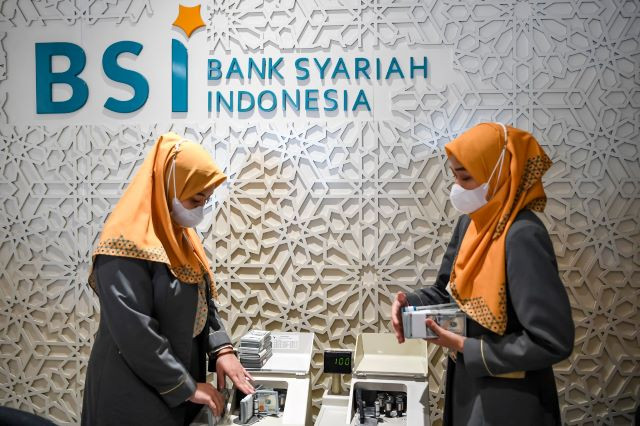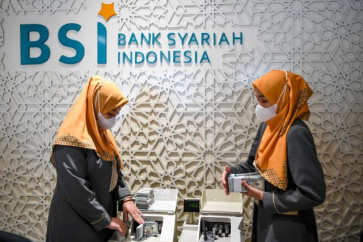Popular Reads
Top Results
Can't find what you're looking for?
View all search resultsPopular Reads
Top Results
Can't find what you're looking for?
View all search resultsCan ethical business mandates boost Indonesia's digital economy?
As data and technology expand access to goods and services, lawmakers and regulators must ensure it will deliver long-term well-being and not just short-term profits.
Change text size
Gift Premium Articles
to Anyone
 Back in business: Bank Syariah Indonesia (BSI) tellers count United States dollar banknotes at the bank’s branch office on Jl. Thamrin in Central Jakarta on May 11, 2023. The management said the bank had resumed operations after hackers allegedly stole customers’ personal data recently. (Antara/M Risyal Hidayat)
Back in business: Bank Syariah Indonesia (BSI) tellers count United States dollar banknotes at the bank’s branch office on Jl. Thamrin in Central Jakarta on May 11, 2023. The management said the bank had resumed operations after hackers allegedly stole customers’ personal data recently. (Antara/M Risyal Hidayat)
I
ndonesia has made remarkable progress in financial inclusion, expanding financial access from 36 percent to 76 percent of adults in just over a decade. With tools like QRIS, BI-Fast, e-KYC and digital credit reports, Indonesians are transacting, saving, investing and borrowing digitally with ease and at speeds never seen before.
However, financial access has not translated into better financial well-being. Jobs remain scarce, wages stagnant and housing increasingly unaffordable. Debt burdens are growing while credit quality is declining. Access alone is clearly not enough.
As our financial system becomes increasingly digitized and data-driven, Indonesia must now focus on using data in a way that empowers consumers and builds long-term trust. Lenders and fintech firms are already using consumer data to develop products, assess risks, and target customers. As a result, even underbanked and unbanked Indonesians can now complete a loan application in under 10 minutes.
But without clear guardrails, these digital advances risk prioritizing profit over sustainable financial wellbeing. Tools meant to personalize financial services can end up enabling only short-term profit maximization. This is why Indonesia must adopt an ethical business mandate, a principled framework that prioritizes long-term consumer trust, financial resilience and stakeholder accountability.
Ethical business principles help balance the profit motive with protection of consumers. By recognizing consumers as foundational stakeholders of the Indonesian economy, we ensure their wellbeing is not sacrificed for short-term financial gain.
With Indonesia now revising its National Financial Literacy Strategy and Financial Services Roadmap for the 2026–2030 period, the country has a timely opportunity to embed these principles.
To ensure that the increasing quantity of data available in today’s society and economy is used ethically and responsibly, lawmakers and regulators might want to consider the following recommendations:


















